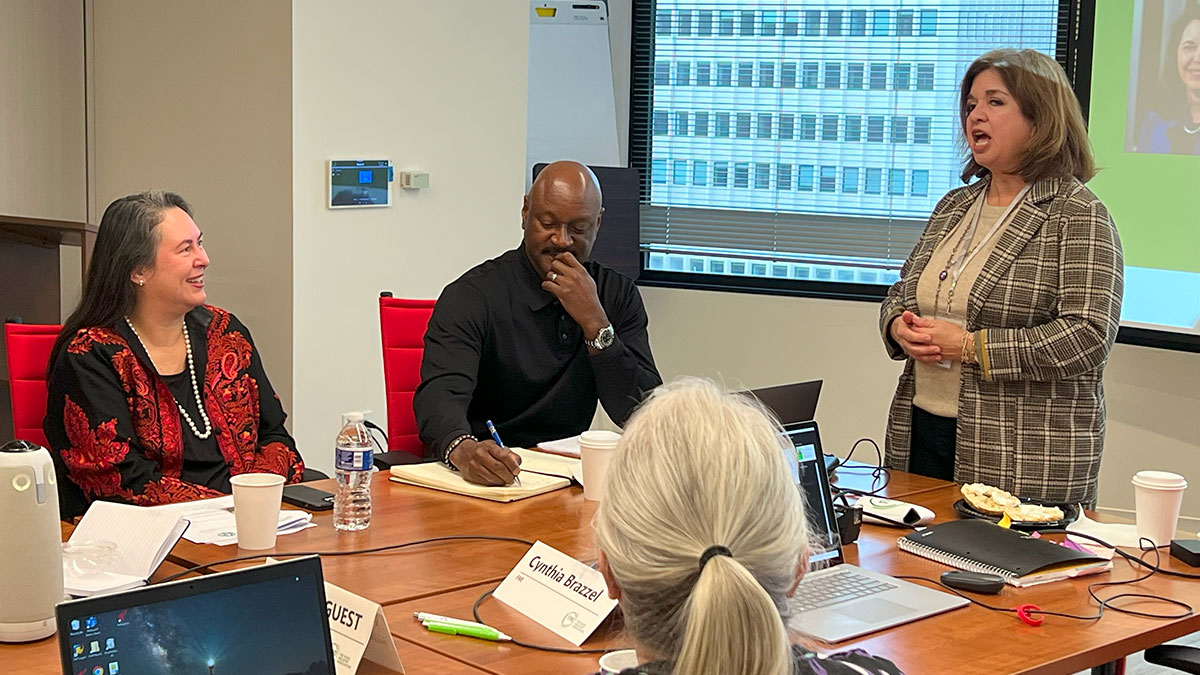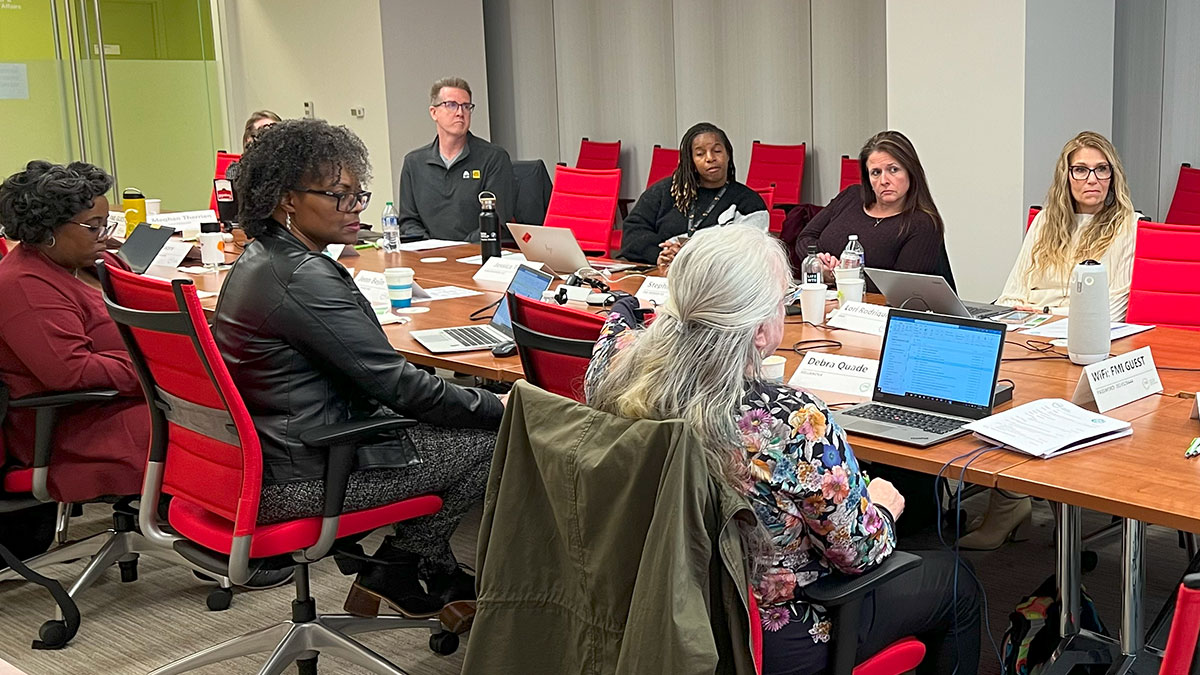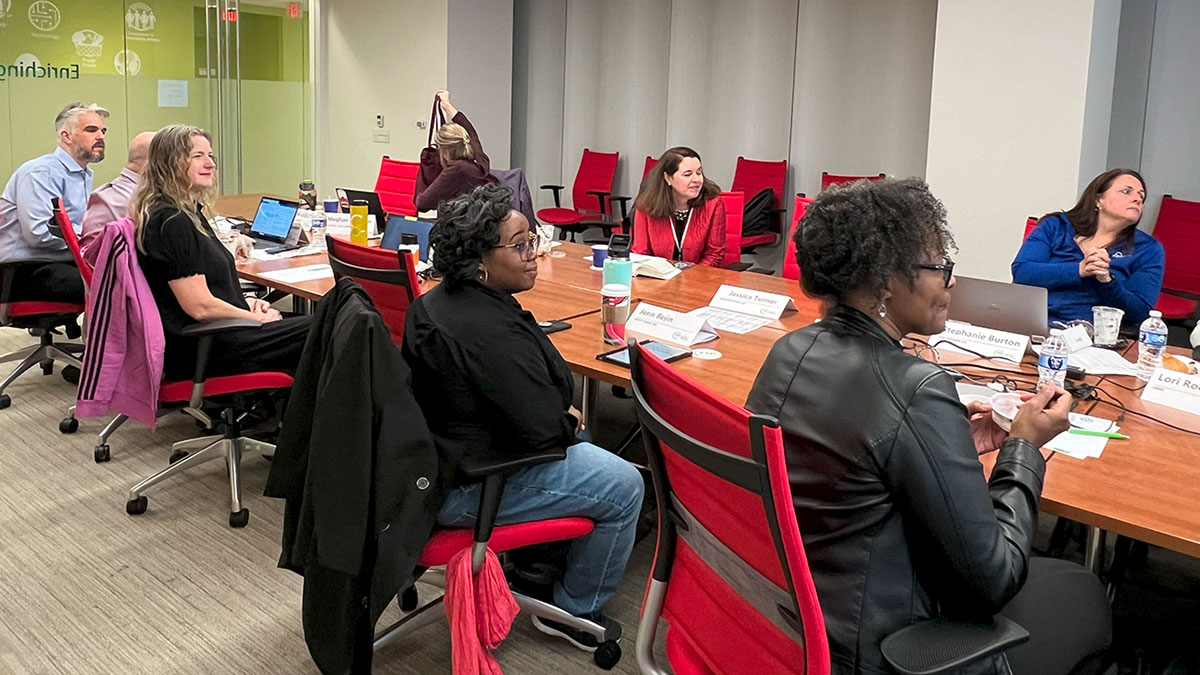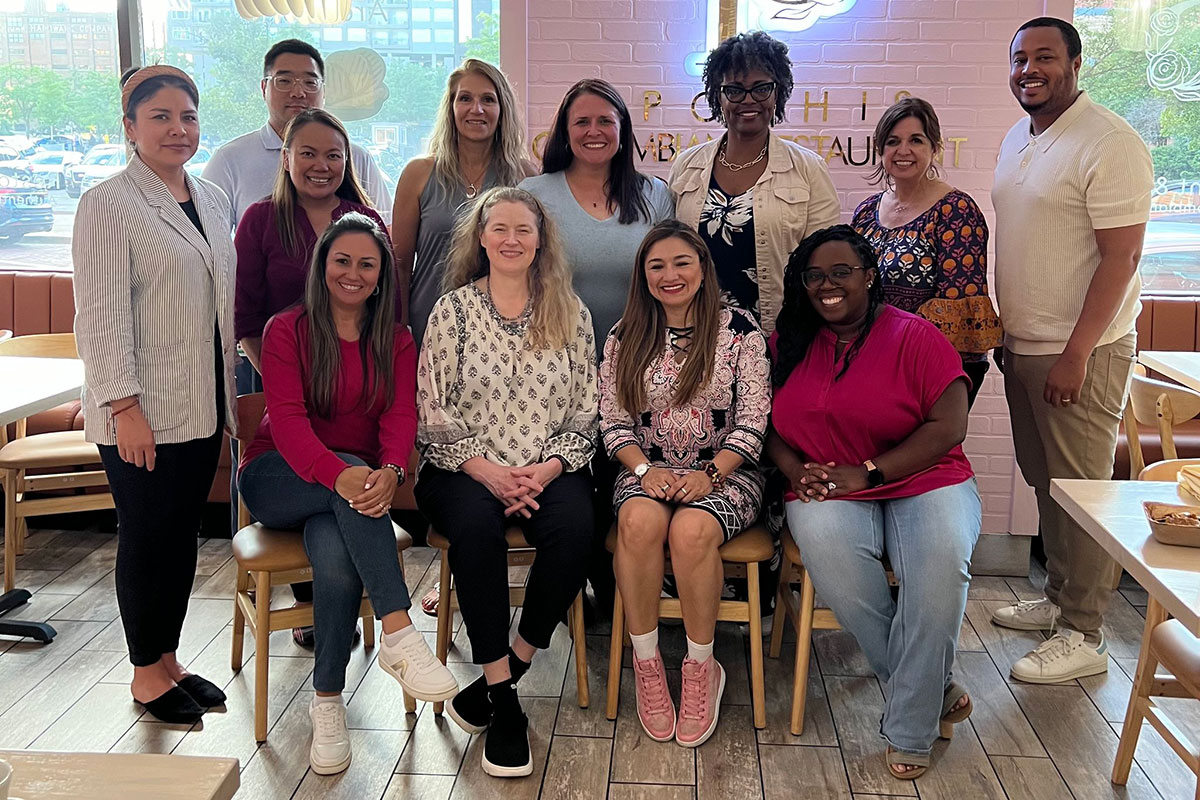By: Cynthia Brazzel, Senior Director, Member Relations and Advocacy (Western Region), FMI
Changing the status quo is an intentional act. With the many changes that have occurred in the food industry, from supply chain dynamics to the influx of technology, from a focus on local to a focus on social responsibility and most importantly the savvy consumer, FMI members are challenged to change the status quo in how they approach their sourcing and procurement. Why? Because the shopper is ever-changing, representing evolving demographics in the U.S., specific preferences, expanding markets and global tastes.

Companies with a focus on supplier diversity understand the value of having dedicated practitioners to guide their procurement teams and instill a culture of responsibility, encouragement, and metrics to demonstrate the business value of a diverse supplier pool.
The FMI supplier diversity committee gathered at the FMI offices in early December for its annual in-person retreat. Comprised of 25 member companies, the committee meets monthly (virtually) and hosts two in-person meetings. The recent retreat was hosted at the FMI offices in Arlington, Va., and featured three guest speakers as well as a spotlight on one committee member’s journey toward building a global supplier diversity program.

- Ying McGuire from The National Minority Supplier Diversity Council (NMSDC), discussed the value of certifications of suppliers and how NMSDC addresses different populations.
- Elizabeth Vazquez, CEO and co-founder of WEConnect International, highlighted her organization’s initiatives to help empower women leaders internationally.
- George Ingham, Esq., of Hogan Lovells, addressed a combined audience of the FMI Supplier Diversity committee and the FMI Diversity Equity Inclusion+Belonging committee. It was a timely discussion addressing how the SCOTUS decision on affirmative action may affect business decisions and approaches to supplier diversity as well as talent acquisition/management activities. Mr. Ingham discussed the legal landscape and several legal challenges to DEI initiatives and offered a framework to help companies consider how to mitigate risk related to DEI activities.
- Shaun Jones, senior director, procurement & head of global economic Inclusion & Supplier Diversity from Mondelez International, explained the challenges of expanding a program globally, recognizing the differences in corporate cultures across different countries as well as identifying what constitutes a diverse supplier.
The committee identified priorities for 2024, recognizing the influence and impact that the food retail industry has on the marketplace and thus the importance of leading in this area.

Whether you are a seasoned practitioner or about to launch a supplier development program, we encourage retailer/wholesaler and product supplier members to join the FMI Supplier Diversity committee and learn about the tools available, including the Supplier Diversity Best/Next Practices Guide for the Food Industry. Please contact Cynthia Brazzel for more information.


 Industry Topics address your specific area of expertise with resources, reports, events and more.
Industry Topics address your specific area of expertise with resources, reports, events and more.
 Our Research covers consumer behavior and retail operation benchmarks so you can make informed business decisions.
Our Research covers consumer behavior and retail operation benchmarks so you can make informed business decisions.
 Events and Education including online and in-person help you advance your food retail career.
Events and Education including online and in-person help you advance your food retail career.
 Food Safety training, resources and guidance that help you create a company food safety culture.
Food Safety training, resources and guidance that help you create a company food safety culture.
 Government Affairs work — federal and state — on the latest food industry policy, regulatory and legislative issues.
Government Affairs work — federal and state — on the latest food industry policy, regulatory and legislative issues.
 Get Involved. From industry awards to newsletters and committees, these resources help you take advantage of your membership.
Get Involved. From industry awards to newsletters and committees, these resources help you take advantage of your membership.
 Best practices, guidance documents, infographics, signage and more for the food industry on the COVID-19 pandemic.
Best practices, guidance documents, infographics, signage and more for the food industry on the COVID-19 pandemic.
